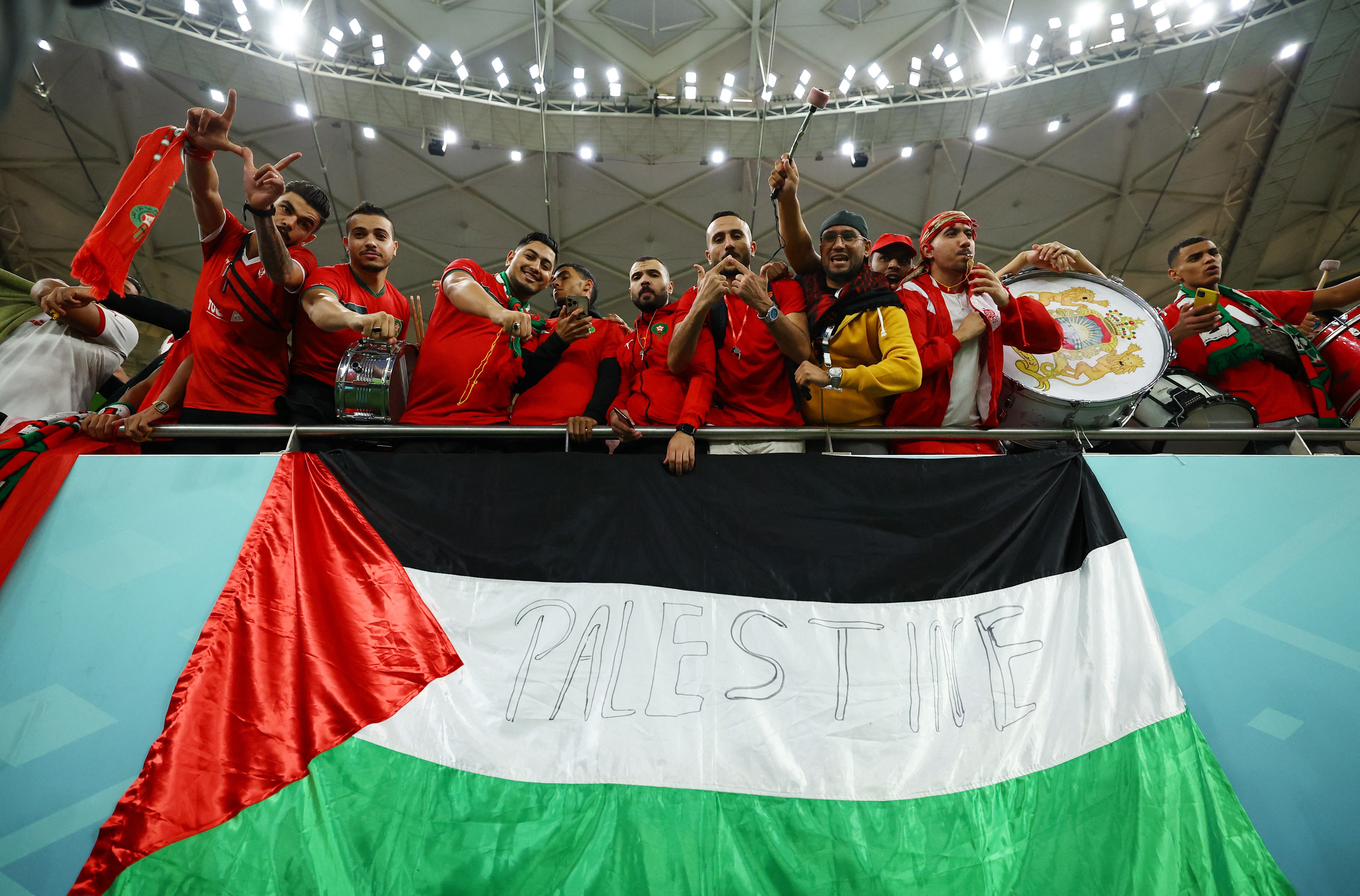Should we be rooting for Morocco against France?
We all seek heroes but foisting political symbolism onto sport is always a fraught affair, writes Borzou Daragahi


Miraculous Morocco have made it to the semi-finals of the World Cup. It’s the farthest any Arab or African nation has ever advanced in the high-profile football tournament. The team, led by Besiktas defender and former Wolves star Romain Saiss, will play against reigning champions France on Wednesday night in Qatar.
For the victories, team spirit and solid defensive play, Morocco has become the darling of the Arab world and the global south. The Atlas Lions have also stirred worldwide passion by waving the Palestinian flag after each victory.
“Palestine has been the winner in this World Cup,” wrote scholar Amro Ali on Twitter. “Arab regimes can pursue normalisation, but the people of the Arab world will have the final say.”
Let’s hear it for the underdog. But not so fast. Even as team Morocco makes what Ali praised as a “principled stance” on the Israeli occupation of Palestinian lands, others noted Morocco’s not-so-praiseworthy occupation of Western Sahara, which capital Rabat claims as an ancestral part of its homeland. The former Spanish territory, rich with potassium, has been mired in a low-level war for independence for decades.
“It’s hard for me to rejoice seeing this while Morocco is occupying and oppressing another people,” wrote activist Marwa Fatafta. “I have zero doubt about these players’ genuine solidarity with Palestine, but I feel uneasy celebrating it and not thinking of the struggle of Sahrawi people.”
Adding more controversy, the raising of the Palestinian flag also drew allegations of “antisemitism” by commentators, who have noted that the expressions of solidarity with the Palestinian cause were welcomed in Doha, even as those supporting LGBT+ rights or the Iranian opposition were barred from stadiums.
Still, in a game between France and Morocco, one should still root for the team from the global South, right? Except, look at the players of France, and note the prevalence of African names and faces, including the great Kylian Mbappe, raised in a rough Paris banlieue by a Cameroonian dad and Algerian mom. Is he any less a representative of the global south than Dutch-born Chelsea midfielder Hakim Ziyech, a star on Morocco’s team?
Is France’s dynamic multicultural tapestry, at least in part the product of a democratic and republican vision, any less inspiring than Morocco’s postcolonial stasis, under the flag of a repressive centuries-old hereditary monarchy?
We all seek heroes, and football seems a harmless and natural venue to lift our spirits as we cheer on the underdog. But foisting political symbolism onto sport is always a fraught affair, often yielding more confusion and ambiguities than clear-cut good guys and bad guys.
Yours,
Borzou Daragahi
International correspondent



Join our commenting forum
Join thought-provoking conversations, follow other Independent readers and see their replies
Comments